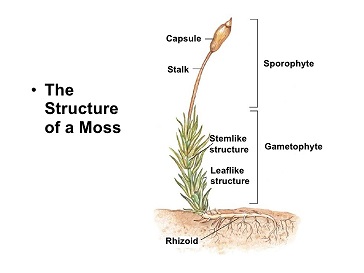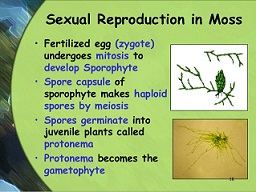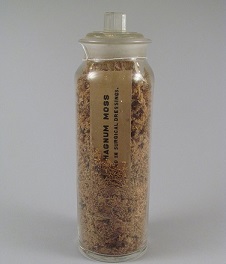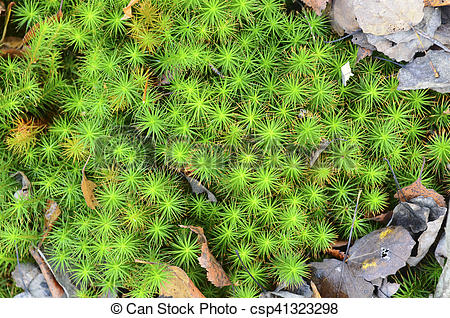Moss: Difference between revisions
No edit summary |
No edit summary |
||
| Line 1: | Line 1: | ||
=Overview= | =Overview= | ||
[[File:Erosion-control.jpg|right|caption|thumb]] | |||
Mosses are a group of plants that belong to the division Bryophyta. Mosses are extremely important during the early stages of ecological succession. As a new environment is being formed such as sand dunes in Presque Isle or huge boulders made of igneous granite rock in the Adirondacks that were left behind by deglaciation. These are the types of conditions that start the beginning phases of new life. | Mosses are a group of plants that belong to the division Bryophyta. Mosses are extremely important during the early stages of ecological succession. As a new environment is being formed such as sand dunes in Presque Isle or huge boulders made of igneous granite rock in the Adirondacks that were left behind by deglaciation. These are the types of conditions that start the beginning phases of new life. In these examples the surfaces becomes inhabited through the process of succession, during which various different plant communities dominate and take over the site such as lichens and once they have lived and died enough for something else to take root, mosses come along and then the process continues through time and the species get bigger and more complex. | ||
In these examples the surfaces becomes inhabited through the process of succession, during which various different plant communities dominate and take over the site such as lichens and once they have lived and died enough for something else to take root, mosses come along and then the process continues through time and the species get bigger and more complex. | |||
=Structure of moss= | =Structure of moss= | ||
Revision as of 15:13, 15 April 2019
Overview
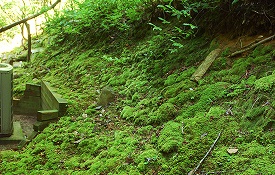
Mosses are a group of plants that belong to the division Bryophyta. Mosses are extremely important during the early stages of ecological succession. As a new environment is being formed such as sand dunes in Presque Isle or huge boulders made of igneous granite rock in the Adirondacks that were left behind by deglaciation. These are the types of conditions that start the beginning phases of new life. In these examples the surfaces becomes inhabited through the process of succession, during which various different plant communities dominate and take over the site such as lichens and once they have lived and died enough for something else to take root, mosses come along and then the process continues through time and the species get bigger and more complex.
Structure of moss
Reproduction
Moss have the ability to reproduce A sexually by fragmentation sexual reproduction, which produces millions of microscopic spores. Because of this style of reproduction, mosses play a vital role in being among the first colonizers of newly eroded areas.
Environmental Role
Mosses play an important part in stabilizing soil, reducing erosion, and because of their ability to retain water and being able to maintain humidity in their environments, they in turn reduce the evaporation of water, making more available for succeeding plants. They make soils fertile for maintaining life. Peat moss comes to mind as a great example. We add it to our fertilizer for added nutrition in our gardens. Peat mosses are found throughout the northeastern wetland areas, and are what makes up the majority of bogs. Peat mosses are an important source of fuel in some countries. Peat is abundant in the northern hemisphere and embodies a vast amount of potential energy. In northern Europe, peat is often dried, and compressed into briquettes for use in fireplaces and stoves. In Ireland, peat is still used often as a heating source to cook with. One great advantage of peat as a fuel is that it burns clean. About 95% of peat harvested in Ireland is burned to generate electricity. Because it has the ability to absorb large amounts of water, peat improves the water-holding capacity when added to soil.
Medical Use
Peat moss is acidic in nature which prevents the growth of a lot of different types of bacteria. Because of this they have been used in many different ways such as diapers and during both world wars, when bandages ran low, peat moss were introduced as a great antiseptic dressing for wounds." As the moss soaks up all the negatively charged nutrients in the soil, it releases positively charged ions that make the environment around it acidic. For wounded humans, the result is that sphagnum bandages produce sterile environments by keeping the pH level around the wound low, and inhibiting the growth of bacteria."
We know longer use mosses for bandages mostly because it isn't cost effective to dig the stuff up. Which turns out is a good thing because we need mosses to stay where there at. Vast areas full of sphagnum and other types of mosses have been accumulating carbon for thousands of years under the ground and in certain areas if they defrost or dry out, the carbon stores will leak out which would be horrible for climate change.
Sources:
[[https://basicbiology.net/plants/non-vascular/mosses/
http://www.timberpress.com/blog/2015/09/5-environmental-benefits-of-moss-gardening/
http://www.softschools.com/facts/plants/moss_facts/504/
Willis K.J. and McElwain J.C. 2002. The evolution of plants. Oxford.
https://alaskanessences.com/club-moss-i-lycopodium-annotinum-i
https://www.slideshare.net/andresfgomezl/moss-to-ferns
https://www.canstockphoto.com/texture-background-swamp-sphagnum-moss-41323298.html
